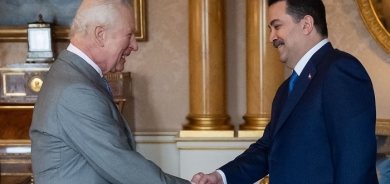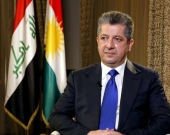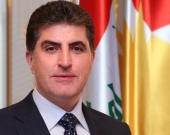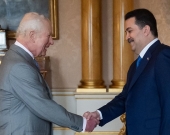Turkish PM Erdogan calls airstrikes on Syria 'unacceptable'

Prime Minister Recep Tayyip Erdogan said, "No excuse can justify this operation," which has been attributed to Israel.
Monitoring groups said the air raids killed at least 42 soldiers, and Damascus warned that it would retaliate.
There has been no official confirmation from Israel's government over the strikes, though an Israeli official anonymously told Reuters that the strike on Friday targeted a shipment of missiles thought to be on their way to Hezbollah militants in Lebanon.
Erdogan, a one-time ally of Syrian President Bashar al-Assad, has become one of his harshest critics since the beginning of the Syrian uprising.
While addressing lawmakers Tuesday, Erdogan said, "Assad is trying to cover up what happened at Banias by using the Israeli raids as a pretext."
Erdogan called Assad a "butcher" on Sunday.
In Israel, Hebrew newspaper Yedioth Acharonoth cited senior Israeli officials suggesting that it may have been thanks partly to Israel's steps toward rapprochement with Turkey that Israel was able to attack Syria.
The unnamed sources said Israeli Prime Minister Benjamin Netanyahu's apology to Turkey for his country's 2010 deadly military raid of the Mavi Marmara flotilla allowed Israel to operate freely in the north without fearing conflict with or even meaningful censure from Turkey.
Syria shelling Israel?
Stray shelling from Syria spilled over into the Israeli portion of the Golan Heights on Monday, according to the Israeli military. The military said the three or four stray mortars appeared to be accidental and unconnected to the airstrikes.
The tension is palpable in Israel. Residents could hear air force jets in the sky above Jerusalem, which was not the case Monday.
The Syrian conflict has pulled in many regional players, though some have refused to take a side.
"If you look around the region, whether it's the Jordanians, the Israelis, Hezbollah and the Iranians ... this is becoming much more of an existential struggle," Salman Shaikh, director of the Brookings Doha Center, told Agence France Presse.
Iranian Foreign Minister Ali Akbar Salehi spoke about Syria during a press conference in Amman with his Jordanian counterpart Tuesday. Salehi said, "We refuse any solution forced from outside. We are against any foreign intervention in Syria. We have seen what has happened in some countries, which I will not name, after they faced foreign intervention. We don't want history to repeat itself in Syria."
Jordan's Foreign Minister Nasser Judeh added, "There is no spread of any foreign troops on Jordanian land. Jordan, with its armed forces and deep-rooted history, doesn't need any foreign troops on its land," according to Al Jazeera.
Meanwhile, a spokesman for a Palestinian militant group within Syria said on Tuesday that Assad's regime had given the go-ahead to attack Israel.
Anwar Raja of the Popular Front for the Liberation of Palestine-General Command said they had "a green light" from Assad to "attack Israeli targets" from the Syrian-held part of the Golan Heights, according to Ha'aretz.
UN clarifies statement, says 'no conclusive findings' on chemical weapons in Syria
GlobalPost
Senior Correspondent Noga Tarnopolsky contributed to this report from Jerusalem.












